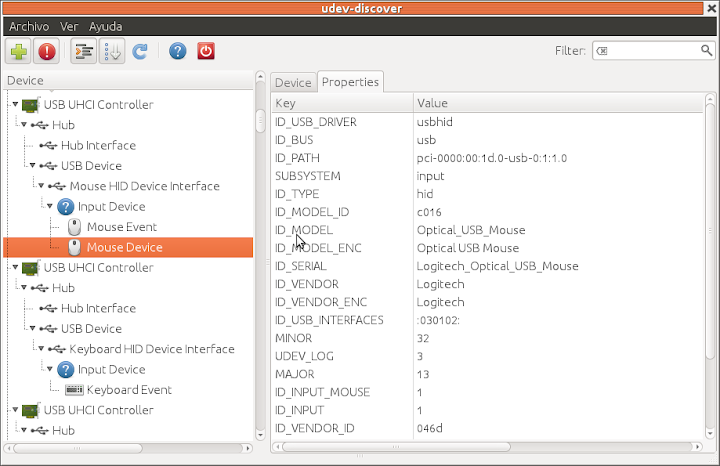My good friend José Félix Ontañón has released the first stable version, website and ppa of his last project, udev-discover.

udev-discover is a very useful tool for all developers who use to deal with hardware. It use GUdev to get the info and has a very nice features to make the hardware integration debugging easier.
It was inspired on the old GNOME Device Manager (which was based on the HAL Device Manager), which wasn’t no longer active after the migration from HAL to GUdev, but then he added some very nice features such a search box, debug output console, the possibility of select the subsystems you want to be shown, follow the signals and new devices pluged in realtime and much more.
I have to say that I use it a lot lately and I’m very happy with it 🙂
UPDATES:
- I forgot to link the code which is (by now) hosted at Github until Félix move the project to GNOME infrastructures.
- I also forgot to mention that I got it working fine at Ubuntu Oneiric, but it has a little bug about one path which is already reported. Félix told me that a minor version with this and other minor bugs fixed will be released very soon along with packages for Oneiric at the ppa.

This is a great tool to have, I’m surprised the functionality doesn’t already exist in Gnome – or at least a subset of it?
Well, I think the only similar tool we have at GNOME (at least at the time he started his project) was udev-browser from Lennart Poettering.
But, since the deprecation of HAL we have a lack of this kind of tools.
This is a very nice tool. Do you know if it will become a part of a default GNOME install? It would be useful to have a Linux equivalent to Windows device manager readily available.
That is something Félix wanted and was wondering.
Maybe now is more focused on developers than normal users, so I not sure if it could be a tool for the desktop, but all the work it has under the hood could be used for a simpler UI.
@Juanje really thank you for your post, since you published it, people has opened some bugs and a gentoo guy is working on a port.
@NickG @Stuart thanks for your feedback,
I’m planning to propose it as a gnome module, but first step is to request git/mailinglist/bugzilla at gnome, solve some bugs, launch a minor release, and make some community around.